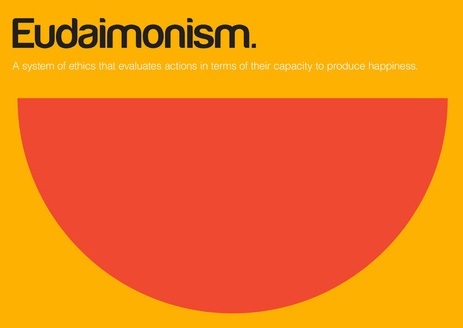Well-being. Obviously. – Ian Morris
Over the past three months I have frequently hijacked Ian’s Friday visits to the Academy. More often than not it has been to confirm a line of enquiry regarding our proposed Diploma (think a balance curriculum, home-made ebacc), otherwise it has been to ask a favour, seek a connection. Ian has always been forgiving of my impromptu requests and generous with his time. There it is – my appreciation on record.
This Friday The Wellington Academy hosted the Wellington family INSET. Ian was leading a session. I gate crashed. I sat right at the front, like an eager Year 7 pupil. “Presenter Ian,” on the front foot and challenging, is so very different to the “colleague Ian” described above, but there is method to his approach.
Ian introduced his sardined audience to instrumentalism.
Where output and efficiency are aggressively pursued and where human persons or the natural world are viewed as instruments to achieving something else, which often leads to their exploitation.
In education, schools that aggressively pursue results at the expense of pupils and teachers could be said to be instrumentalist (and to also fail a basic standard of ethics).
Ouch. With little embellishment, he went on to say that,
Some schools not only neglect students’ health but may actively harm it. In school systems that focus on narrow academic metrics, such as those in England, some schools respond by focusing on the more able students, and not engaging other students or recognising their efforts. Research suggests that “teaching to the test,” which commonly occurs in school systems with a narrow focus on attainment, can harm students’ mental health.
Garnished with the recent statistics that 50,000 teachers left the profession in 2013-14 with applications to train to teach, down by 21,000.
Ian went on to present the antidote, an alternative education system, a system set about “preparing children for a life of autonomous, whole-hearted and successful engagement in worthwhile activities and relationships.” The name for this movement – eudaimonism. Thankful he pronounced it for us. Eu|daemon|ism is, he advocated, is the point of school.
Now that the why had been delivered (rather convincingly may I add) he moved onto the what and how, presenting a pathway from virtue to character to eudaimonia.
Virtue
A virtue is a lasting feature of a person, a tendency for a person to be a certain way. It is not merely a lasting feature, however, one that just sits there undisturbed. It is active: to have it is to be disposed to act in certain ways. And it develops through selective response to the circumstances.
Character and the teaching of character (The Caterpillar Process)
The promotion of character education does not consist simply in the way we teach or in the content of our teaching. Underlying all education we find a commitment to what makes a good human being and to what constitutes a good society. The ethics of character focuses upon how individuals are formed as moral agents and this ‘complex’ process is more important than what rules children should necessarily follow or even how they should follow them. Every school contributes to the development of character in its pupils as does every teacher.
Eudaimonia
Leading to the point he open with. The point of school.
Well-being. obviously.
This post was only possible given the generosity of Ian Morris.


